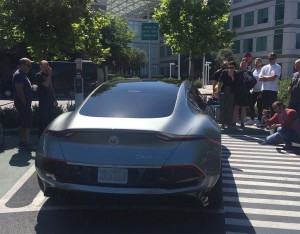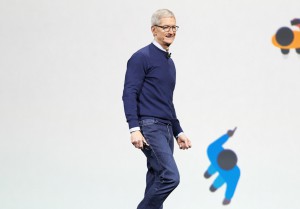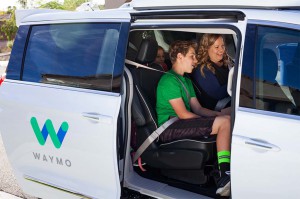While Apple has yet to say much about its long-rumored car program, some intriguing information has come out thanks to the California Department of Motor Vehicles, the DMV revealing that the tech giant now has permits to test up to 55 self-driving vehicles in the state.
That would actually give Apple the ability to test even more vehicles than Waymo, the Google spinoff that has been far more open about its own autonomous ambitions – though less than General Motors, its San Francisco-based Cruise Automotive now holding permits for 104 test vehicles.
And the DMV report does not cover other states where Apple might be testing, notably Nevada and Arizona, the two Southwest states that have positioned themselves as particularly friendly to autonomous vehicle researchers. Waymo, for example, is known to be running large fleet tests that may run into the hundreds of vehicles in Arizona, including both autonomous models requiring human backup “operators” and the first of its completely driverless prototypes.
Apple has a history of declining to comment about its future tech programs, and its interest in self-driving vehicles has been no exception. But it has been dropping increasingly clear hints, starting with CEO Tim Cook’s initial statement referring to the technology needed to make an autonomous vehicle work as “the mother of all AI.” He finally confirmed the company does have some sort of program under way last summer.
(Apple offers first piece inside its self-driving car program. Click Here for the story.)

A Fisker Emotion was spotted at Apple HQ in Silicon Valley last year. Could the tech firm be interested in using the EV as a platform for its autonomous system?
It also helped when Apple last December applied to the U.S. Patent and Trademark Office for a patent on a new “autonomous navigation system.” The technology, according to the application, is designed to operate “independently of any data received from any devices external to the vehicle and any navigation data stored locally to the vehicle prior to any monitoring of navigation.”
The latest report from the California DMV indicates that Apple’s test fleet has more than doubled from January, when it had permits for 27 vehicles. None has yet been approved for operating entirely without a backup operator onboard. Apple also has received approval for 83 operators in California.
But what exactly it hopes to bring to market has been far from certain. It’s been widely reported that the program, initially known as Project Titan, then scaled back sharply after hiring a number of automotive industry – as well as Tesla – veterans. Some reports suggested Apple had decided to cut back, even eliminate its auto project entirely.
What now appears to be the case is that Apple has decided to follow a strategy closer to that of Waymo, rather than trying to compete directly with Tesla or General Motors:
- Waymo is developing both autonomous hardware and software but will turn to partners for the vehicles it will use in its planned ride-sharing service, already locking up deals for Chrysler Pacifica Hybrid minivan, as well as Jaguar’s new all-electric I-Pace;
- Tesla CEO Musk this month announced that a fully hands-free version of its Autopilot technology will be ready to roll some time next year. It will power products like the current Models S, X and 3 and new vehicles to come, including the Tesla Semi Truck;
- GM, meanwhile, also wants to launch a ride-sharing service but, at least initially, it will rely on modified versions of the Chevrolet Bolt EV designed from the start for ride-sharing duties.
It is unclear if Apple will launch into the ride-sharing field or simply offer its technology to carmakers who don’t want to – or can’t come up with viable self-driving technology of their own.
(Click Here to find out why is Apple checking out Fisker’s Emotion.)
The autonomous race is on and virtually every automaker is working on some form of the technology, as are tech firms like Continental Teves and Aptiv, along with ride-sharing giant Uber and its chief competitor, Lyft.
The push to bring autonomous technology to market has some major proponents, including a number of Congressional leaders working up bills to make it easier to test the technology on public roads. But there are also some critics who have been speaking out more loudly in the wake of recent crashes involving various forms of autonomous technology.
That includes a handful of incidents involving Tesla vehicles, at least one fatality known to have occurred when a Model X was operating in semi-autonomous Autopilot mode. The first known fatality involving a fully autonomous vehicle occurred in March when a Volvo SUV operated by Uber struck and killed a pedestrian in the Phoenix suburb of Tempe.
Uber temporarily suspended its test program following that crash. Arizona also came under fire as it does not require that companies operating in the state report on the number of incidents that have occurred involving its vehicles. California’s DMV-mandated “Vehicle Disengagement Report” not only covers crashes large and small, but also incidents where those backup operators were required to take over control of a vehicle.
(To see more about Tim Cook admitting to a program, Click Here.)
So far, Apple has not submitted one of those reports to the state but will need to start filing in the coming year.


